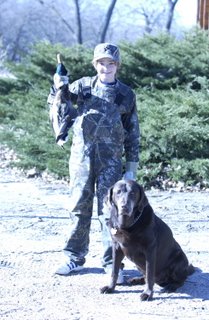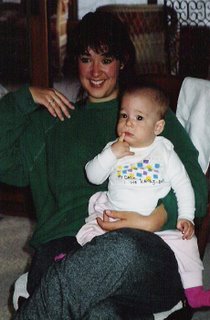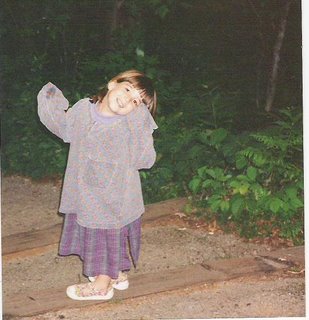Friday, October 27, 2006
Thursday, October 26, 2006
Thursday, October 19, 2006
my other classroom
Some of you have expressed interest in the work I do in the inner city with Kindermusik. In an effort to encourage more educators to step out and offer Kindermusik class to children who could not otherwise have it, Kindermusik International CEO Michael Dougherty and Senior Writer Molly McGinn visited us at La Creshe Early Childhood Center. Here is a clip of the video they shot.
Tuesday, October 17, 2006
Monday, October 16, 2006
Happy Birthday Tucker!
Friday, October 13, 2006
Its not to cold for marching band
 The Burnsville High School Marching Blaze are preforming an INDOOR marching band show on Saturday night. (This Saturday, October 14) at 7:00 in the BHS Gym. Tickets are $8.00
The Burnsville High School Marching Blaze are preforming an INDOOR marching band show on Saturday night. (This Saturday, October 14) at 7:00 in the BHS Gym. Tickets are $8.00It is going to be a great show for the family, featuring their super field show, the big band hit Sing Sing Sing and Summertime, as well as 20 other fun stand tunes.
How can the band actually march in a gym you wonder? Come and see. Here is a the HOT cymbal line showing off some of their visuals for the drumline show. Its cold outside so come on in and enjoy the lights drums and music of the MARCHING BLAZE.
(By the way that is Lorelei, cymbal section leader, second from the left (-:)
Tuesday, October 10, 2006
Sunday, October 08, 2006
SIGN & SING
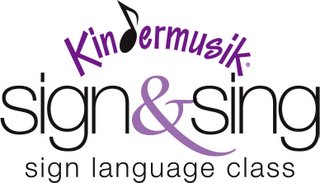 Kindermusik of the Valley SIGN&SING classes start next week and there is still room for you!
Kindermusik of the Valley SIGN&SING classes start next week and there is still room for you!A different approach from other sign language programs.
Through songs, toys, and loving playtime between you and your child, Kindermusik Sign & Sing shows you more than 50 signs your child can use to communicate with you. Using research-proven methods shown to speed language development in hearing children, you'll see how sign language can ease frustration and enhance long-term learning abilities for your child.
Songs and fingerplays.
Already accustomed to fingerplays and rhyme-songs—such as "This Little Piggy"—you'll easily substitute American Sign Language (ASL) signs in familiar songs, improving your child's language skills, fine motor skills, and strengthen fingers for zipping zippers and using scissors.
Learn when you play.
You'll never have to memorize a list of signs. This curriculum gives you the ASL signs that are most useful to you, and most interesting to your child. So playtime and everyday items around the house—ball, bubbles, mom and dad—become the objects of learning in the classroom, and sign language becomes a natural, happy part of your child's day.
Hearing children who know signs, learn language almost twice as fast.
As early as 11-14 months old, hearing children exposed to sign language put little sentences together faster than non-signing children, who do not begin to combine words into short sentences, such as "Da-da car" until the average age of 20 months.
Study conducted by Dr. Michelle Anthony and Dr. Reyna Lindert, Signing Smart program founders.
Benefits for Your Child and You
* Communicate with your child even before she can form the words.
* Ease a child's frustration by helping her communicate what she needs, speed language development, and enhance long-term learning abilities.
* Know when your child is most ready to interact and learn.
* Learn sign language teaching methods, such as making the sign on a child's body, on the floor, or hand over hand.
* Recognize and respond to your child's version of signs.
Enjoy the Journey All Week Long
Sign & Sing is much more than a weekly class. The At Home Materials you receive from your Educator help you to continue that one-of-a-kind experience at home. Family involvement in your child's learning is a fundamental cornerstone of the Kindermusik philosophy because we believe the parent is the child's most important teacher and the home is the most important place for a child's learning to take root and grow.
Sign & Sing At Home Materials:
- Family Activity Guide
- DVD glossary showing 60 signs
- Clip-on flashcards that feature photos of both children and adults using family-friendly American Sign Language signs
Wednesday, October 04, 2006
Music- it is more than we think
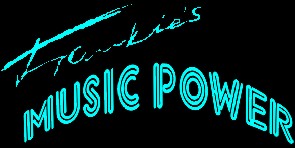 Music is a very powerful subject - It has been used since the Greek times for healing, communication, relaxation and for enjoyment. Even before birth we are aware of our mother's heartbeat and during infancy are relaxed by the song of a lullaby. Every day everybody hears some form of musical pitch or rhythm and it can even be found in nature such as how birds communicate through a song-like speech.
Music is a very powerful subject - It has been used since the Greek times for healing, communication, relaxation and for enjoyment. Even before birth we are aware of our mother's heartbeat and during infancy are relaxed by the song of a lullaby. Every day everybody hears some form of musical pitch or rhythm and it can even be found in nature such as how birds communicate through a song-like speech. Music is such a powerful force, it creates deep emotions in humans - it is played at weddings for happiness, in horror films and during war for fear and at home for happiness and because of this lends itself to relaxation, stress relief and health therapy - and the connection between music, body, and soul has even been shown to improve physical and mental health.
Skills such as working in teams, communication, self-esteem, creative thinking, calmer attitudes, imagination, discipline, study skills and invention are learnt and improved through the study of music and by focusing on the fact that young children are mostly highly receptive to pitch and rhythm - one of the main ways a child learns its language - that we can drive education in music to children to help them with benefits ranging success in society and in life.
Click HERE to read more.





